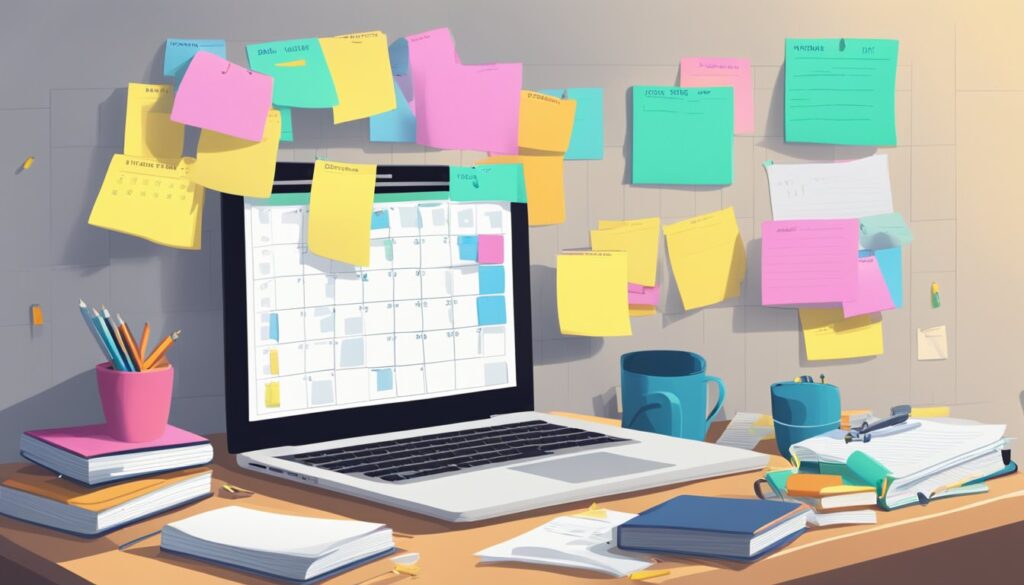How to Prepare for CLAT Exam 2024: Tips and Strategies

Getting ready for the Common Law Admission Test (CLAT) exam may seem overwhelming, but by using effective strategies and resources, you can improve your likelihood of success.
As you gear up for the CLAT 2024 exam, it’s important to have a clear understanding of what the exam entails and how to prepare effectively. This article will provide you with some tips and guidance on how to prepare for the CLAT exam and improve your chances of getting into a top law school.
The CLAT exam is a highly competitive entrance exam that is designed to test your aptitude and knowledge in various areas such as English, General Knowledge, Mathematics, Legal Aptitude, and Logical Reasoning.
It is an essential requirement for admission into various undergraduate and postgraduate law programs in India. Therefore, it is crucial to prepare well for the exam to secure a spot in your desired law school.
Let’s go through the essential steps to prepare for the CLAT 2024 exam, including creating a study plan, selecting the right study materials, and practicing mock tests. With the right preparation, you can confidently take on the CLAT exam and achieve your goals.
Page Contents
- 1 Understanding the CLAT Exam
- 2 CLAT Preparation Strategies
- 3 Tips for CLAT Exam
- 4 CLAT Syllabus
- 5 Best Books for CLAT preparation
- 5.1 1. Universal’s Guide to CLAT & LL.B. Entrance Examination
- 5.2 2. Legal Awareness and Legal Reasoning by A.P. Bhardwaj
- 5.3 3. Word Power Made Easy by Norman Lewis
- 5.4 4. Quantitative Aptitude for Competitive Examinations by R.S. Aggarwal
- 5.5 5. Logical Reasoning and Data Interpretation for the CLAT and other Law Entrance Exams
- 6 Section-Wise Preparation
- 7 Review and Practice
- 8 Exam Day Preparedness
- 9 CLAT FAQ’s
Understanding the CLAT Exam

If you are planning to take the CLAT exam in 2024, it is important to have a clear understanding of the exam.
The Common Law Admission Test (CLAT) is a national level exam conducted for admission to undergraduate and postgraduate law programs offered by National Law Universities (NLUs) in India. Here are some key points to help you understand the CLAT exam:
- CLAT Exam Pattern: The CLAT exam consists of multiple-choice questions. The exam is conducted for a duration of 2 hours and consists of 120 questions. The exam is divided into five sections – English Language, Current Affairs, Legal Reasoning, Logical Reasoning, and Quantitative Techniques. Each correct answer carries 1 mark and there is a negative marking of 0.25 marks for each wrong answer.
| Section | Number of Questions | Marks for Correct Answer | Weightage (in%) |
|---|---|---|---|
| English Language | 28 – 32 | 1 | 20 |
| Current Affairs | 34 – 38 | 1 | 25 |
| Legal Reasoning | 35 – 38 | 1 | 25 |
| Logical Reasoning | 28 – 32 | 1 | 20 |
| Quantitative Techniques | 13 – 17 | 1 | 10 |
- CLAT Syllabus: The CLAT syllabus is designed to test the candidate’s aptitude and knowledge in various areas such as English Language, Current Affairs, Legal Reasoning, Logical Reasoning, and Quantitative Techniques.
Having a clear understanding of the CLAT exam pattern, syllabus, and eligibility criteria is essential to prepare effectively for the exam. It is recommended to refer to the official website of CLAT for detailed information and updates regarding the exam.
CLAT Preparation Strategies

Preparing for the Common Law Admission Test (CLAT) requires a well-planned and organized approach. Here are some effective strategies to help you prepare for the CLAT exam 2024.
Study Plan Development
Developing a study plan is crucial to your CLAT preparation. It helps you to stay focused and organized.
Start by setting achievable goals and breaking down your study plan into smaller, manageable tasks. Prioritize the topics that need more attention and allocate sufficient time to each subject. Make sure to include regular revision and practice sessions in your study plan.
Time Management Techniques
Time management is key to success in the CLAT exam. Effective time management helps you to balance your study schedule and avoid last-minute cramming.
Use techniques, where you study in short bursts with regular breaks, to increase your productivity. Also, try to eliminate distractions and create a conducive study environment.
Choosing the Right Study Material
Choosing the right study material is crucial to your CLAT preparation. Invest in quality study materials, including textbooks and reference books.
Make sure to choose materials that cover the entire syllabus and are updated to reflect the latest changes in the exam pattern. Additionally, consider using mock tests and previous year question papers to practice and assess your progress.
Keep a Check (Track)
Keeping a track of your progress is essential to your CLAT preparation. Regularly assess your progress and make necessary adjustments to your study plan.
Use a study journal or planner to record your progress and identify areas that require more attention. Also, seek feedback from your mentors or peers to help you improve your preparation plan.
Tips for CLAT Exam
Here are some tips to help you prepare for the CLAT exam in 2024:
Know the Exam Pattern
Before you begin your preparation, it is important to understand the exam pattern.
Knowing the exam pattern will help you plan your preparation and allocate time for each section accordingly.
Create a Study Plan
Creating a study plan is essential to ensure that you cover all the topics and revise them before the exam.
Divide your study plan into daily, weekly, and monthly goals. Allocate more time to the sections that you find difficult and less time to the sections that you are confident about.
Practice Previous Year Question Papers
Practicing previous year question papers is one of the most effective ways to prepare for the CLAT exam.
It will help you understand the exam pattern, the type of questions asked, and the difficulty level of the exam. You can also assess your performance and identify your strengths and weaknesses.
Remember, consistency and dedication are key to cracking the CLAT exam. Keep practicing and stay focused on your goal.
CLAT Syllabus

The CLAT syllabus comprises five sections: English Language, Current Affairs, Legal Reasoning, Logical Reasoning, and Quantitative Techniques.
| Section | Topics |
|---|---|
| English Language | Vocabulary, Grammar, Reading Comprehension |
| Current Affairs | National & International Current Affairs, Awards and Honours, Sports, Politics, etc. |
| Legal Reasoning | Legal Maxims, Indian Constitution, etc. |
| Logical Reasoning | Critical Reasoning, Syllogisms, Analogies, Logical Sequences, etc. |
| Quantitative Techniques | Elementary Mathematics. |
It is crucial to have a clear understanding of each section’s topics and subtopics to prepare for the exam effectively. You can refer to various study materials, online resources, and previous year question papers to get an idea of the exam pattern and difficulty level.
Best Books for CLAT preparation
Choosing the right books for CLAT preparation is crucial for success in the exam. Here are some of the best books that can help you in your preparation:
1. Universal’s Guide to CLAT & LL.B. Entrance Examination
This comprehensive guide covers all the sections of the CLAT exam, including English, General Knowledge, Mathematics, Legal Aptitude, and Logical Reasoning. It includes practice questions and previous year’s papers to help you get a feel of the exam.
2. Legal Awareness and Legal Reasoning by A.P. Bhardwaj
This book is specifically designed for the Legal Aptitude section of the CLAT exam. It covers all the important legal concepts and principles and provides practice questions to help you improve your legal reasoning skills.
3. Word Power Made Easy by Norman Lewis
This book is a classic for improving your vocabulary. It covers a wide range of words and provides easy-to-understand explanations and examples. A strong vocabulary is essential for the English section of the CLAT exam.
4. Quantitative Aptitude for Competitive Examinations by R.S. Aggarwal
This book covers all the topics of the Mathematics section of the CLAT exam, including Arithmetic. It provides a large number of practice questions and solved examples to help you improve your problem-solving skills.
5. Logical Reasoning and Data Interpretation for the CLAT and other Law Entrance Exams
Can cover the basics from Universal’s Book.
By using these books along with a structured study plan, you can improve your chances of success in the CLAT exam.
Section-Wise Preparation

Preparing for the CLAT exam requires a systematic approach and a clear understanding of the exam pattern.
English Language and Comprehension
This section is designed to test your proficiency in English language and comprehension skills.
One way to prepare for the English Language section is by reading newspapers, novels, and articles regularly. It will help you improve your vocabulary, grammar and reading comprehension skills.
General Knowledge and Current Affairs
This section tests your knowledge of current events and general awareness.
To prepare for this section, you should stay updated with the latest news and events. Reading newspapers, watching news channels, and following social media can help you to improve your knowledge of current affairs.
Quantitative Techniques
This section tests your mathematical skills.
To prepare for this section, you should focus on topics such as mathematics and number systems. Solving mathematical problems regularly can help you to improve your speed and accuracy.
Logical and Analytical Reasoning
This section tests your logical and analytical skills.
To prepare for this section, you should focus on topics such as reasoning, analytical reasoning, and logical reasoning. Solving puzzles and brain teasers can help you to improve your logical and analytical skills.
Legal Reasoning and Aptitude
This section tests your knowledge of legal reasoning and aptitude.
To prepare for this section, you should focus on topics such as constitutional law and legal reasoning. Reading books and articles on law can help you to improve your knowledge of legal reasoning and aptitude.
Review and Practice
To ace the CLAT exam, it is essential to review and practice effectively. Here are some tips to help you prepare:
Mock Tests and Sample Papers
Mock tests and sample papers are an excellent way to prepare for the CLAT exam.
They help you understand the exam pattern, time management, and identify your strengths and weaknesses. You can find various mock tests and sample papers. Make sure to attempt as many as possible and analyze your performance to improve your preparation.
Previous Year’s Question Papers
Solving previous year’s question papers is one of the best ways to prepare for the CLAT exam.
It helps you understand the exam pattern, the type of questions asked, and the difficulty level. Make sure to solve them within the given time limit and analyze your performance to identify areas that need improvement.
Regular Revision
Regular revision is crucial to retain what you have learned and improve your preparation.
Make a revision schedule and stick to it. Revise the topics you have covered every day, and make sure to revise the difficult ones more frequently. You can use flashcards, mind maps, or notes to aid your revision.
Exam Day Preparedness
On the day of the CLAT exam, it is essential to be well-prepared and confident. Here are some tips to help you be ready for the big day.
Admit Card and Documentation
Make sure you have your CLAT admit card and other required documentation with you before leaving for the exam centre.
Without these, you will not be allowed to take the exam. Double-check that all information on your admit card is correct, including your name, photograph, and signature.
Last-Minute Tips
Here are some last-minute tips to help you perform your best on exam day:
- Arrive at the exam centre early to avoid any last-minute stress or delays.
- Make sure you have all the necessary stationery.
- Read the exam instructions carefully before starting the exam.
- Allocate your time wisely. Divide the time for each section and stick to it.
- Attempt easy questions first and then move on to difficult ones.
- Don’t panic if you get stuck on a question.
- Check your answers before submitting the paper.
CLAT FAQ’s

When is the CLAT exam conducted?
The CLAT exam is typically conducted in the month of May every year.
What is the exam pattern for CLAT 2024?
The CLAT 2024 exam will consist of 120 multiple-choice questions, and the time allotted for the exam will be two hours.
The questions will be divided into five sections.
How many hours per day should I study for CLAT?
The amount of time you should dedicate to studying for the CLAT exam per day can vary depending on your individual schedule, learning style, and level of preparedness.
However, a common recommendation is to aim for at least 2-3 hours of focused study time each day in the months leading up to the exam. It’s important to find a balance that allows for consistent and effective study without causing burnout.
Does CLAT have a negative marking?
Yes, the CLAT exam does have a negative marking of 0.25 marks for each wrong answer.
How can I prepare for the CLAT exam?
To prepare for the CLAT exam, you should start by understanding the exam pattern and syllabus.
By understanding the exam pattern, syllabus, and eligibility criteria, you can prepare for the CLAT exam with confidence.
Don’t forget to practice regularly and stay focused on your goal. Good luck!







